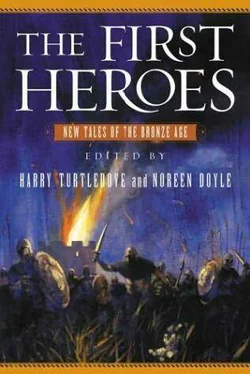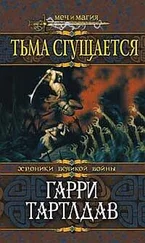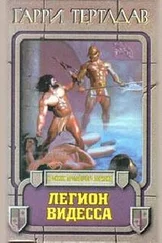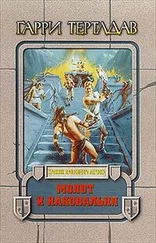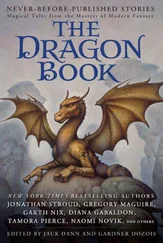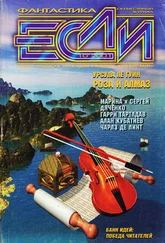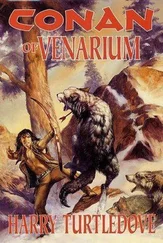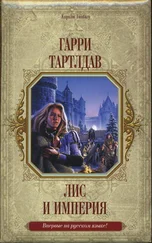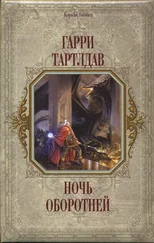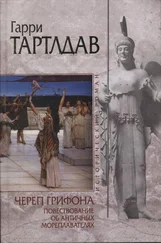Гарри Тертлдав - The First Heroes
Здесь есть возможность читать онлайн «Гарри Тертлдав - The First Heroes» весь текст электронной книги совершенно бесплатно (целиком полную версию без сокращений). В некоторых случаях можно слушать аудио, скачать через торрент в формате fb2 и присутствует краткое содержание. Жанр: Фантастика и фэнтези, на английском языке. Описание произведения, (предисловие) а так же отзывы посетителей доступны на портале библиотеки ЛибКат.
- Название:The First Heroes
- Автор:
- Жанр:
- Год:неизвестен
- ISBN:нет данных
- Рейтинг книги:3 / 5. Голосов: 1
-
Избранное:Добавить в избранное
- Отзывы:
-
Ваша оценка:
- 60
- 1
- 2
- 3
- 4
- 5
The First Heroes: краткое содержание, описание и аннотация
Предлагаем к чтению аннотацию, описание, краткое содержание или предисловие (зависит от того, что написал сам автор книги «The First Heroes»). Если вы не нашли необходимую информацию о книге — напишите в комментариях, мы постараемся отыскать её.
The First Heroes — читать онлайн бесплатно полную книгу (весь текст) целиком
Ниже представлен текст книги, разбитый по страницам. Система сохранения места последней прочитанной страницы, позволяет с удобством читать онлайн бесплатно книгу «The First Heroes», без необходимости каждый раз заново искать на чём Вы остановились. Поставьте закладку, и сможете в любой момент перейти на страницу, на которой закончили чтение.
Интервал:
Закладка:
Ankhtifi and his sons and all the troops mustered their boats and their spears and their bows and their shields. They stepped their masts and raised their sails, but the wind died.
"This is," said Minnefer, looking northward, "an evil sign."
"The wind always dies when you most want it," Ankhtifi said, looking southward. "Take out the lines and we'll track."
So some of the men took out the ropes and pulled the boats from shore, hour by hour, up the river. Each of Ankhtifi's four sons, all strong young men, took their turn at the lead of the trackers. Ankhtifi prayed to Horus, Hemen, Neferkare, whatever he should call the falcon, to restore the wind, that they might all the sooner be upon the border of the district of Edfu. Shadows and clouds passed along the sky, as if the god Set were up to a storm. A great flock of geese flew up the river. In their wake the wind rose—from the west and dusty, useless and dangerous like Libyan tribes. The geese followed them in the days that they tracked, and even at night as they camped, Ankhtifi could hear their cackle, negeg-negeg-negeg.
Then, at last, as one evening they tracked past the city of Nekhen, the flock scattered. Ankhtifi sighted a falcon, the north wind returned. The square sails grew rounded and the trackers joyfully leapt aboard. Ankhtifi drew a deep breath, filling his nose with the fragrance of the God's-Land.
"Sail," he said, "even into the night." The sailors did as he ordered, without argument that there might be shallows the pilots could not see, obstacles the helmsmen could not avoid. He longed to ask them if they disregarded their sailor's instincts because their noses were filled with incense from the wind—or perhaps it was now upon his own breath and they obeyed him on that account. But he did not ask, for by the time he thought to, they were on the borders of Khuu's district and one word might give them away to the rebels. Under the cover of night and silence they passed by crumbling villages and wastelands; dark, stinking things floating in the river; piles of grain rotting on the shore; until they came to the fields and the city of Edfu.
The sky was yet dark to the west; the east was just giving birth to the sun, which had yet to warm the moist morning air. Baboons, stirred into worship of the sun as shadows crept away from the hills, barked across the river.
Ankhtifi broke his men into four ranks and placed himself before the first. He led the first up the riverbank through the fields that were green with bindweed and cornflower, clover and vetch. His eldest son, Sobekhotep-the-younger, led the next line, Hotep-the-younger the next, Sanebi the last, and Idy held the rest of the troops back along the river, guarding the boats.
They came upon bodies along the way: a man and young girl, left there to rot, fly-blown father and sister to the stinking, swollen forms that had floated by on the river.
Smoke rose from beyond the wall of Edfu. A dog yapped, a bitch answered. The high voices of children carried in the still morning air. Such ordinariness in a day when the dead lay unburied troubled Ankhtifi deeply.
Where were the men to tend the fields? Callous and lazy, too, the grip of the rebel had made them. Truth had been overthrown and abandoned like the corpses. Evil spread like a weed in the fields.
"Khuu!" Ankhtifi called. "Where is Khuu?"
For an hour, like an eternity, Ankhtifi and his troops stood there before the wall. Living in the shadow of a rebel had made even the soldiers slothful. They would rather drink beer and chew melon seeds.
"Ankhtifi of Hefat has come to Khuu! In the name of the King!"
Now Khuu's men took notice. They whooped and ran to the walls, pouring through the gate while others crouched atop the walls. "Halt, you of Khuu!" cried Ankhtifi, raising his battle-ax. "In the name of the King of Upper and Lower Egypt, Neferkare, put down your spears, lay aside your bows, and drop your slings!" The men of Khuu did halt, and although they did not put down their spears, nor lay aside their bows, nor even drop their slings, they did not immediately press their attack. Instead, they laughed.
"Neferkare is not king here," cried an archer from the wall. Others took up the reply like a chorus, weaving into it insults: "Neferkare-who-has-lost-his-testicles is not King here, Neferkare-who-drinks-urine is not King here, Neferkare-who-eats-filth is not King here."
"Then," Ankhtifi replied, "there can be none here who can stand against me, because the only one who can best me is a man worthy of Neferkare, King of Upper and Lower Egypt. Lay aside your weapons and take up Truth once again."
The troops of Edfu who were assembled before the gate made way for a man. This man wore a starched-white kilt, heavy rings and armlets of Nubian gold and precious stones, and carried a fine battle-ax of bronze. Ankhtifi thought he saw red hairs among the black of his head.
"Khuu, I have come to weed your fields," Ankhtifi said.
Khuu laughed. "I would not trust a man of Neferkare with a sack of barley on his back."
"Why have you made a wasteland of your district?"
"There will be a harvest of grain after the next inundation. This year it has been necessary to winnow the chaff that covers my district. No doubt you have seen stray bits lying about. Like the wind I will take you out, too, Ankhtifi of Hefat, unless you prove yourself to be other than straw. There is a new lord in Egypt, and he performs in Truth before the gods. Let him lay mud upon your fields, Ankhtifi, let him bless the District of Nekhen." "The District of Nekhen is already blessed, by Hemen, by Horus, by Neferkare. We are civil in Nekhen and do not leave our dead for the carrion-birds and the flies, nor let the fish nibble upon their backs. This is not Truth. This is chaos. The stench of it fills my nostrils, Khuu. You and your name and your district, they reek."
Khuu raised his ax, and as he did so, slings and arrows and spears came up in the arms of his men.
"Beware, Khuu, for Horus himself—your own god!—brings me to Edfu. I am the hands of the King."
"Then I will deprive this so-called king of his hands and of that shriveled sack of skin that hangs empty between his legs."
Khuu overtook the distance that had separated them, and Ankhtifi took up his shield. With a yell from Khuu, arrows rained from the walls and slingstones came like bees to chicory. Ankhtifi's men stood still until, in the moment after, Ankhtifi gave the order to defend, and they raised their shields.
Khuu pressed his shield against Ankhtifi's, trying to bring him to ground. "You're a fool," he said between his teeth as Ankhtifi resisted. "Beside Montu of Thebes, god of war, another god stands behind the new lord, a Great Cackler, one self-created, the Hidden."
"Have you seen this god?"
"No one has. No one can see this Amun."
"I have seen Horus, spoken to Hemen, and he stands behind no one but Neferkare! But—" Ankhtifi pressed harder now "—but—" to give room to his ax "—but this god flies above me!"
His ax bit hard into the stiff cowhide of Khuu's shield, which was torn away by this blow. At that strike, and one word from Ankhtifi, the troops of Nekhen broke from their defense and returned the assault.
In the end, Khuu and thirty of his troops lay dead. Khuu's sons were slain, and all of his brothers. And so were Ankhtifi's sons, all but Idy, who had remained behind to guard the boats.
Ankhtifi, wounded but standing like many of his own troops, summoned together the men of Edfu. His heart ached to strike blows at these men who had killed his sons, but he had to do otherwise, in the name of his King, lest civil strife burn forever across the District of Edfu. He would take his sons home and give them good burials and mourn them and miss them and rule justly over their slayers.
Читать дальшеИнтервал:
Закладка:
Похожие книги на «The First Heroes»
Представляем Вашему вниманию похожие книги на «The First Heroes» списком для выбора. Мы отобрали схожую по названию и смыслу литературу в надежде предоставить читателям больше вариантов отыскать новые, интересные, ещё непрочитанные произведения.
Обсуждение, отзывы о книге «The First Heroes» и просто собственные мнения читателей. Оставьте ваши комментарии, напишите, что Вы думаете о произведении, его смысле или главных героях. Укажите что конкретно понравилось, а что нет, и почему Вы так считаете.
